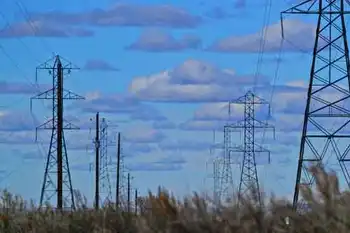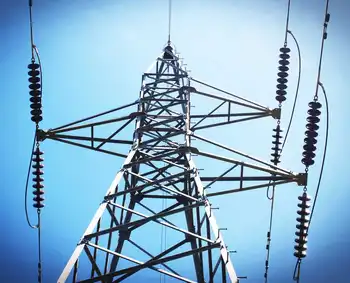Energy conservation still an issue after blackout
By CityNews
Substation Relay Protection Training
Our customized live online or in‑person group training can be delivered to your staff at your location.

- Live Online
- 12 hours Instructor-led
- Group Training Available
Some experts say no. Jeff Walker of Harris-Decima minimizes any connection between the events of August 14, 2003 and subsequent lifestyle changes by citizens here in Canada.
"We never found in much of the research we had done that there was a direct connection between the big blackout and issues around using too much or too little energy," the pollster VP suggests, pointing to the effects of hurricane Katrina and Al Gore's documentary An Inconvenient Truth as bigger factors in influencing people's views on the environment and climate change.
And Kim Warren of Ontario's Independent Electricity System Operator, which monitors electricity consumption, says though conservation efforts have improved over the past five years the blackout wasn't necessarily the trigger.
"I think people are creatures of habit to some degree... and I don't think there's any lingering effects in reduced consumption from the blackout," he said.
"The individual customers out there I believe want to help."
The Aug. 14 blackout saw Torontonians and millions more on the eastern seaboard, from Ohio and Michigan to Pennsylvania, New York, and Massachusetts, living without power for days. It was four days before power was restored in the U.S., while brownouts and rolling blackouts occurred for more than a week in Ontario.
Lawyer Peter Carayiannis became a mini-celebrity that day when he stepped out into the middle of a busy downtown Toronto street to direct traffic.
"I sort of remember looking at it and thinking, 'Someone's got to do something about this,"' he recalled of the beginning of his blackout experience, which would last about four hours until he was finally relieved from duty.
"To my complete surprise and shock, people were obeying my traffic signals."
Carayiannis says the event sparked a sense of working together and camaraderie not often seen.
"There were all kinds of impromptu block parties that happened all over the city, restaurants did their best to accommodate their customers, when something like a blackout occurs, people generally are going to pitch together and help out everyone else -- it sounds kind of hokey, but it's the truth," he said.
In Mississauga, residents launched a website, http://www.blackoutday.ca/, as a way of organizing annual parties to mark the event.
They also call on Ontarians to conserve power and three dozen municipalities have signed on to do so on the anniversary. Site spokesperson Sheryl Saing says she remembers the day as being "awesome," sparking friendships with neighbours she hadn't talked to much before.
"To me it was the blackout day that got me thinking more and more about the environment and everything I've been doing, it was just amazing how much we could get done without electricity and we actually enjoyed having no power," she said.











